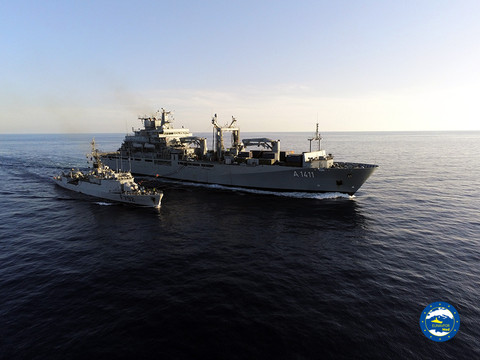[ad_1]

The European Commission says the EU cannot be held responsible for the deaths of people fleeing Libya by crossing the Mediterranean Sea.
“The European Union is not the cause of this tragedy of irregular migration and the fact that persons are losing their lives,” said EU commission spokesperson, Peter Stano on Friday (28 May).
But it is a position contested by the UN high commissioner for human rights, Michelle Bachelet.
Last week, she noted sea crossings have become more dangerous, following a series of policy decisions by the EU and its member states.
Over 11,000 people have been intercepted and returned by the Libyan Coast Guard, while some 2,200 are confirmed to have died or gone missing in their attempt to cross the Mediterranean last year.
“This is not a tragic anomaly, but rather a consequence of concrete policy decisions,” she said, in the report.
That includes almost €60m of EU money to shore up the Libyan borders, while scaling back rescue operations by EU-led naval operations.
The rescue roll-backs started around the same time the Libyans, in late 2017, extended their search and rescue to 94 nautical miles off the Libyan coast.
The same year the EU backed a code of conduct for NGOs, banning them from entering Libya’s territorial waters.
Criminal cases and administrative proceedings against NGO rescue vessels then started to gain pace.
Some 50 such actions have been launched since 2018, including the impounding or seizure of humanitarian vessels.
It means fewer boats are operating out at sea, leading to possible greater loss of life.
Of the 15 charity vessels able to patrol, only around five were operational at the end of December.
Last month, over 130 died off the Libyan coast after their distress signal was repeatedly ignored. Ocean Viking, a rescue boat, found dozens of bodies.
Recent photos of dead babies and toddlers washed up on a beach in Libya has sparked greater outrage, amid reports that the EU’s border agency Frontex is working directly with the Libyans.
At the same time, the EU maintains that it is duly training the Libyan Coast Guard to respect human rights.
“The cooperation with Libyan authorities focuses mainly on training, in order for them to understand the principles of human rights,” noted Stano.
The training, which was suspended, is carried out by the EU’s naval operation Irini.
But an internal EU document on Irini from February said efforts to resume Libyan coast guard training is contingent on providing them with more assets.
The EU cannot say what happens to those unfit to train, given possible ties with criminals and militias. It also cannot tell how many they refused to train, either.
A spokesperson from the Libyan coast guard has previously told EUobserver they are just sent back into the ranks.
Meanwhile, stories of abuse by the Libyan Coast Guard continue to surface.
They have been accused of shooting and ramming and capsizing migrant boats.
Similar abuse has been reported by NGO vessels, who say the Libyans have threatened them.
For her part, Bachelet says the EU should stop helping the Libyan Coast Guard, until they consistently demonstrate a respect for international human rights law.
[ad_2]
Source link